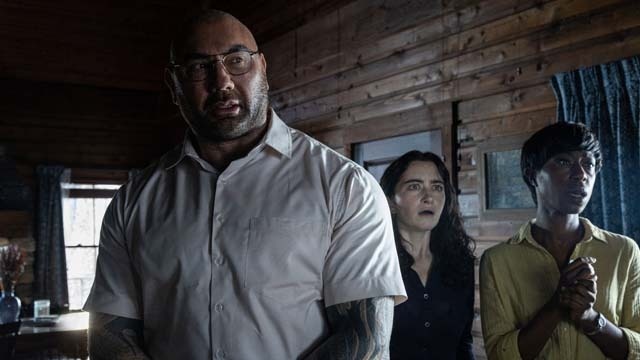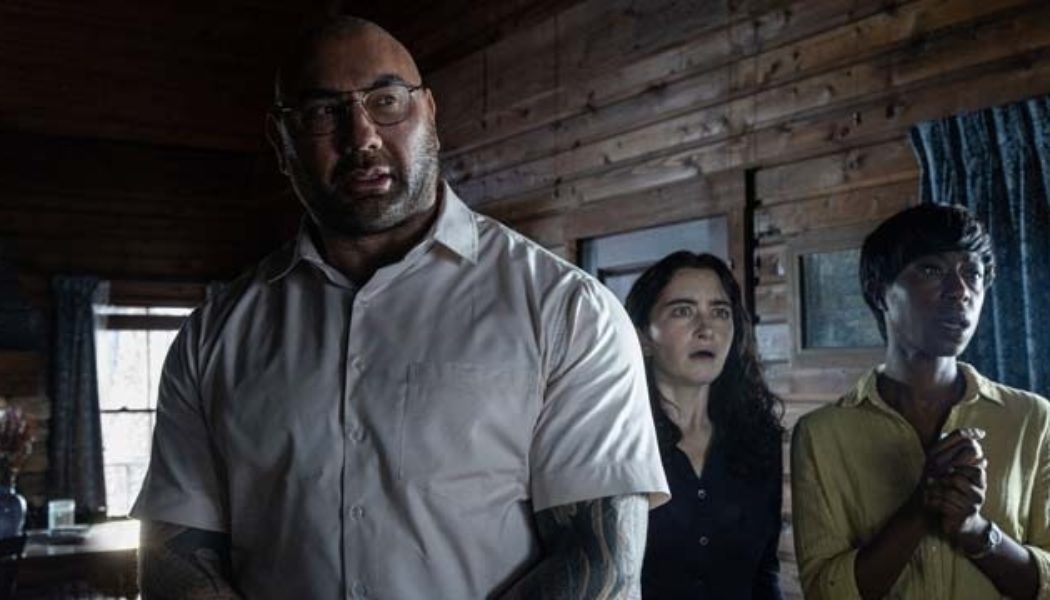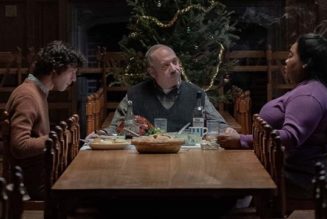
★★★½
Director M. Night Shyamalan, writing with Steve Desmond and Michael Sherman, returns to the creeping-into-your-psyche genre people love him for with Knock at the Cabin. While some scenes seem rushed, a compelling concept and solid performances combine to create a disturbing yet entertaining movie.
Wen (Kristen Cui) and her dads, Andrew (Ben Aldridge) and Eric (Jonathan Groff), are enjoying a vacation at their cabin in the mountains. While Wen is outside collecting grasshoppers, a large, intimidating, but friendly man named Leonard (Dave Bautista) walks up to her. He tells her that she and her dads have a very important mission. Three more individuals then walk out of the woods, carrying what appear to be ancient weapons. This starts a frightening chain of events as the four newcomers tell the vacationers that only they can prevent the Apocalypse. But to do so will require a hard and painful sacrifice.
Shyamalan is known for his unusual and disturbing stories, and this one is no different. By carefully selecting the players for all seven leads, he’s created a thoughtful and disturbing film that treads the line between apparent insanity and reality. Some of the scenes in the film seem rushed, but this is possibly intentional, generating the same kind of urgency in the audience that the characters are feeling – both the captives and the captors. Another trademark of Shyamalan is whether something is or is not what it seems. All four actors manage to portray this well. Bautista presents a solid performance as someone who may be insane yet very committed to a cause. It wouldn’t be a Shyamalan film without lots of easy-to-overlook details in many of the background scenes. There are several for the careful observer who might have an idea of where the film is going.
The cinematography fits the mood of the movie quite well. There are many close-ups of the characters’ faces, which lets the audience feel like they’re right there, and clearly conveys the conviction of the characters. Scenes are tense, dramatic, and very much in your face, without resorting to excessive gore to get the point across. This is an excellent study of how to make a film impactful through camera work without unnecessary gimmickry. The music, often dreary and somewhat creepy, accompanies this cinematography to make the movie even more well-rounded. Interesting symbolism in the costumes and sets expands what the viewer should carefully observe.
Knock at the Cabin is a thought-provoking film, enticing viewers to think about how perceptions and experiences guide our responses – right or wrong. As is typical with Shyamalan, there are numerous revelations in the details.









